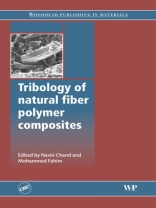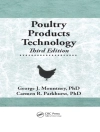Environmental concerns are driving demand for bio-degradable materials such as plant-based natural fiber reinforced polymer composites. These composites are fast replacing conventional materials in many applications, especially in automobiles, where tribology (friction, lubrication and wear) is important. This book covers the availability and processing of natural fiber polymer composites and their structural, thermal, mechanical and, in particular, tribological properties.
Chapter 1 discusses sources of natural fibers, their extraction and surface modification. It also reviews the thermal, structural, mechanical, spectroscopic and morphological properties of unmodified and chemically modified natural fibers such as sisal, jute, wood, bamboo and cotton together with their potential applications. Chapter 2 gives a brief introduction to the tribology of polymer composites and the role of fiber reinforcement and fillers in modifying their tribological properties. Further chapters discuss the chemical composition, physical structure, mechanical properties and tribological behaviour of polymer composites reinforced with sisal, jute, cotton and bamboo fibers. The tribological behaviour of wood polymer composites (WPCs) is also discussed.
Tribology of natural fibre polymer composites is a useful reference guide for engineers, scientific and technical personnel involved in the development of natural fiber composites. In particular it will give an insight into mechanical properties and failure mechanisms in situations where wear, lubrication and friction are a problem.
- Examines the availability and processing of natural fiber composites and their structural, thermal, mechanical and tribological properties
- Explores sources of natural fibers, their extraction and surface modification as well as properties of chemically modified natural fibers
- Provides an overview of the tribology of polymer composites and the role of fiber reinforcement and filters in modifying tribological composites












